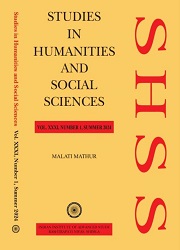Incarcerated Body and Free Mind:
A Krishnamurtian Study of Anjum Zamarud Habib’s Memoir Prisoner No. 100
Keywords:
Prison Memoir, Freedom, Mind, Incarcerated BodyAbstract
When it comes to the genre of life narratives, autobiographies and biographies occupy the center stage. Memoirs, especially prison memoirs, remain away from the discourse. More, when prison memoirs are talked about, those written by women are found on the margins. From the time immemorial, prison is seen as a space of trauma, stress, and confinement (Foucault 1961). Resistance to existing physical and corresponding mental condition makes prison memoirs important for literary studies. Themes of these prison narratives vary from human rights violation to violation of their sense of hope and faith to unparalleled struggle for the liberation. The proposed paper intends to explore the aspects that challenge the existing stereotypes of prison narrative with special reference to the Indian Female Prison Memoir Prisoner No. 100 (2003) by Anjum Zamarud Habib. It gives us a critical glimpse into the unique ways of resistance by the prisoner and thus a different form of activism to acquire the psychological freedom in spite of being physically in jail. Further, the paper intends to examine the reality and the process, which allow the controlled and hegemonized mind to transcend the boundary of physical and symbolic confinement for attaining the state of universality, harmony and radiance of the aesthetic world, which is defined by the realities of beauty and sublimity. Furthermore, the paper therefore may contextualize the Krishnamurti’s idea of freedom of the mind and some aspects of the aesthetic theory of the East as well as the West.



